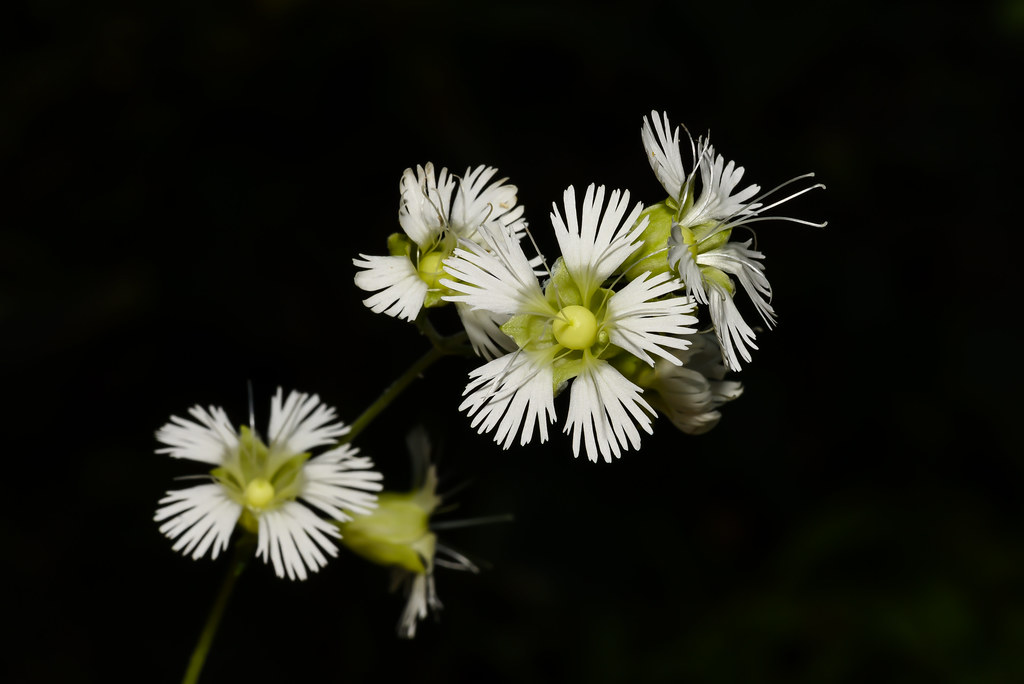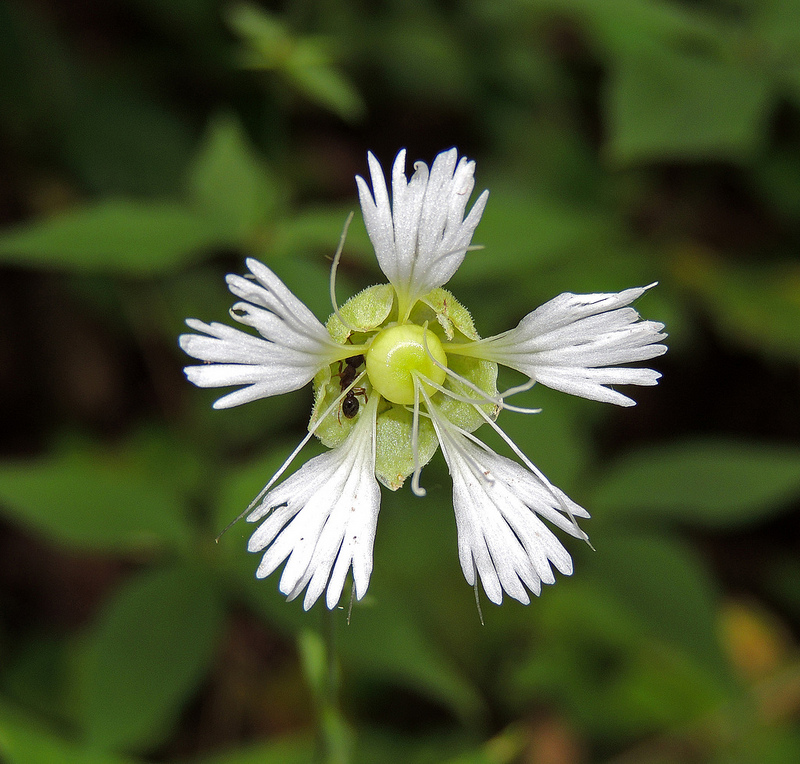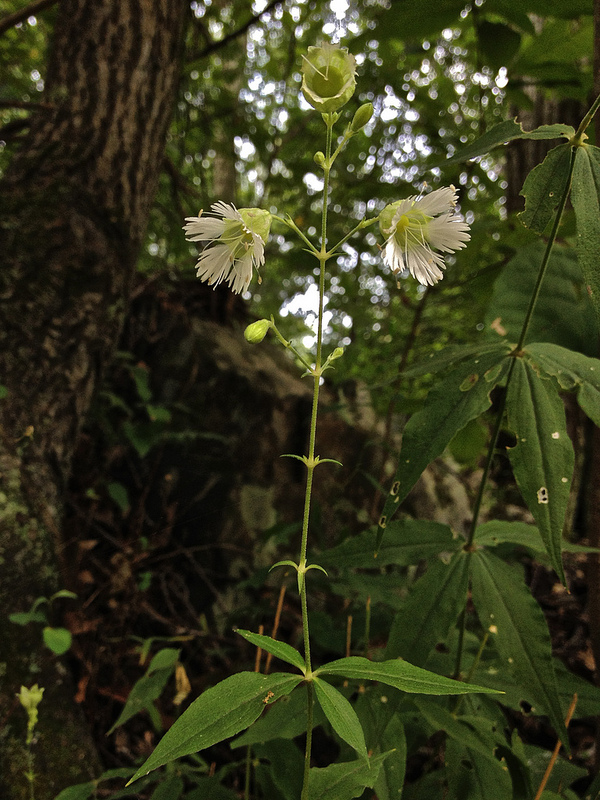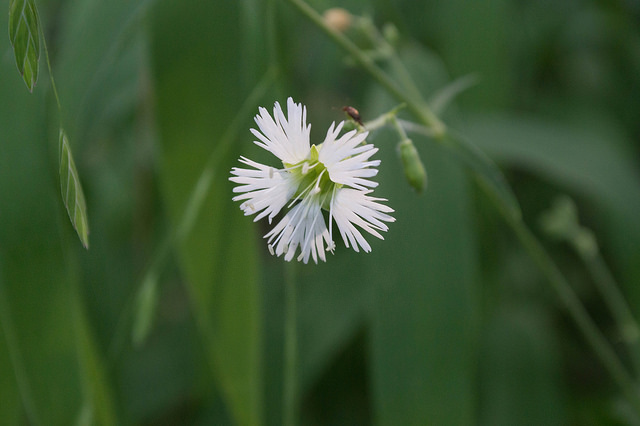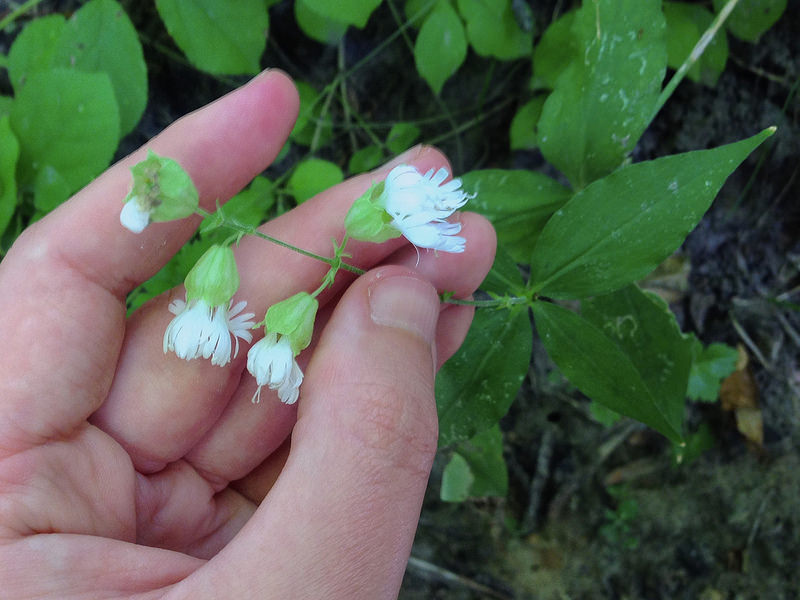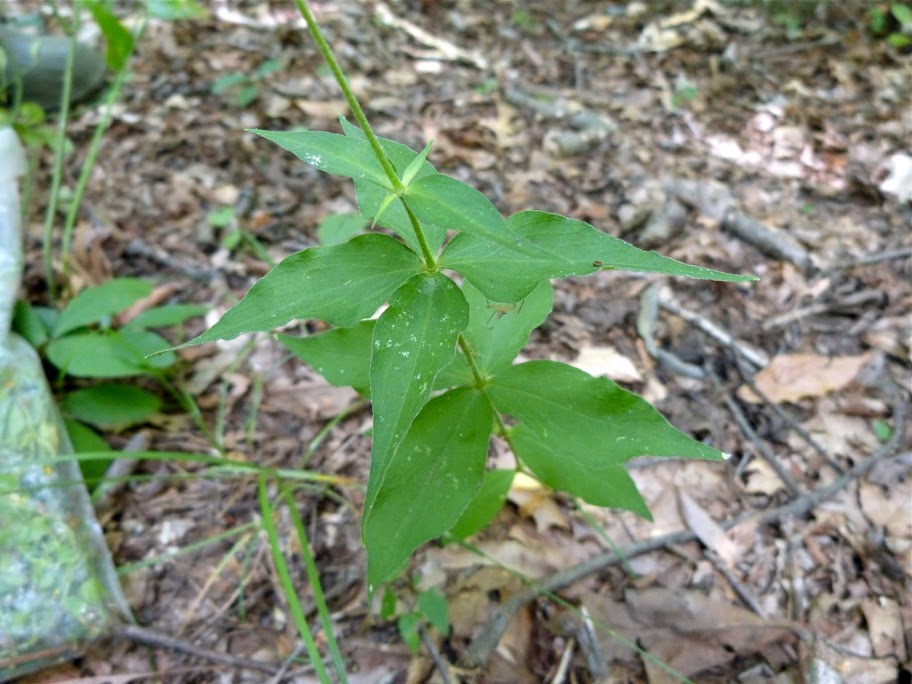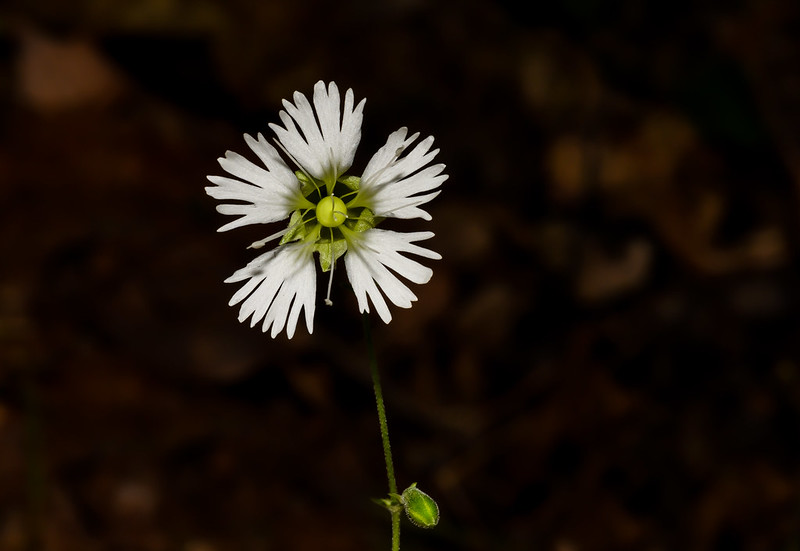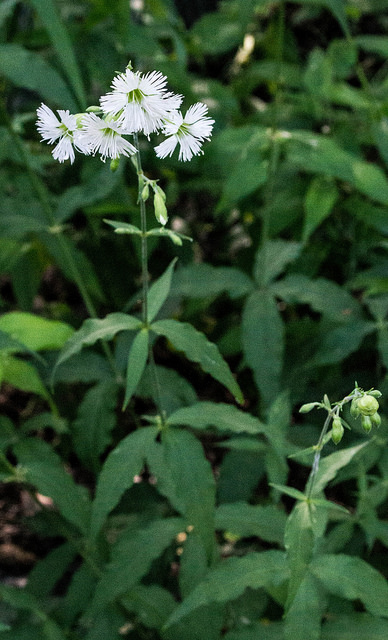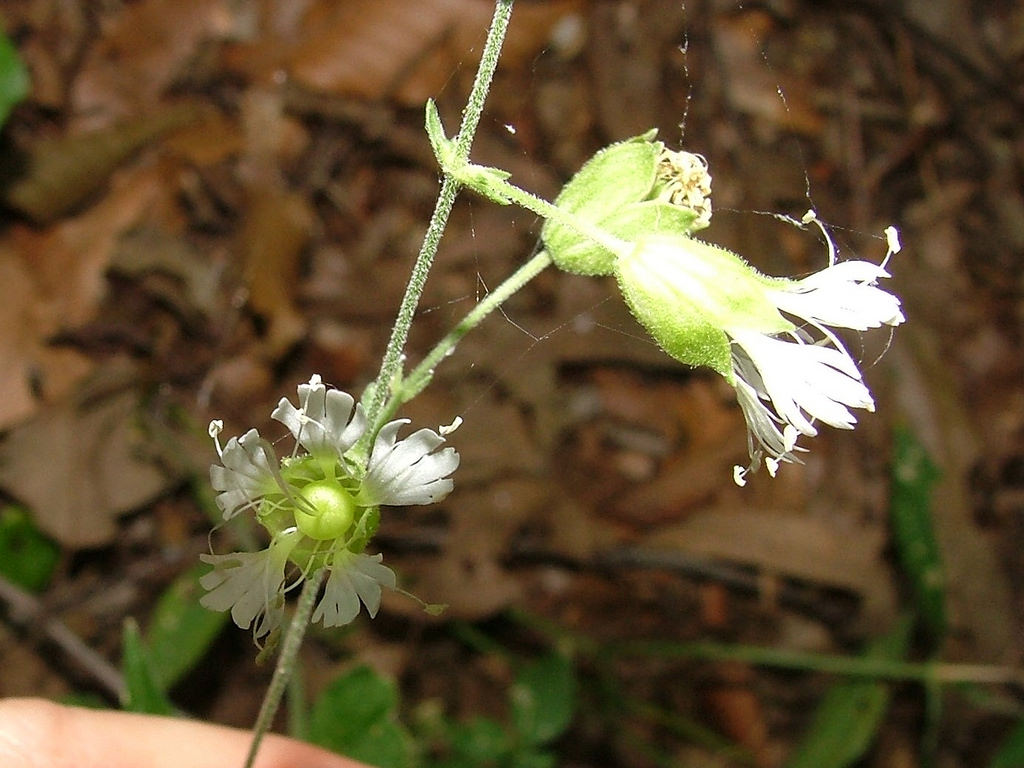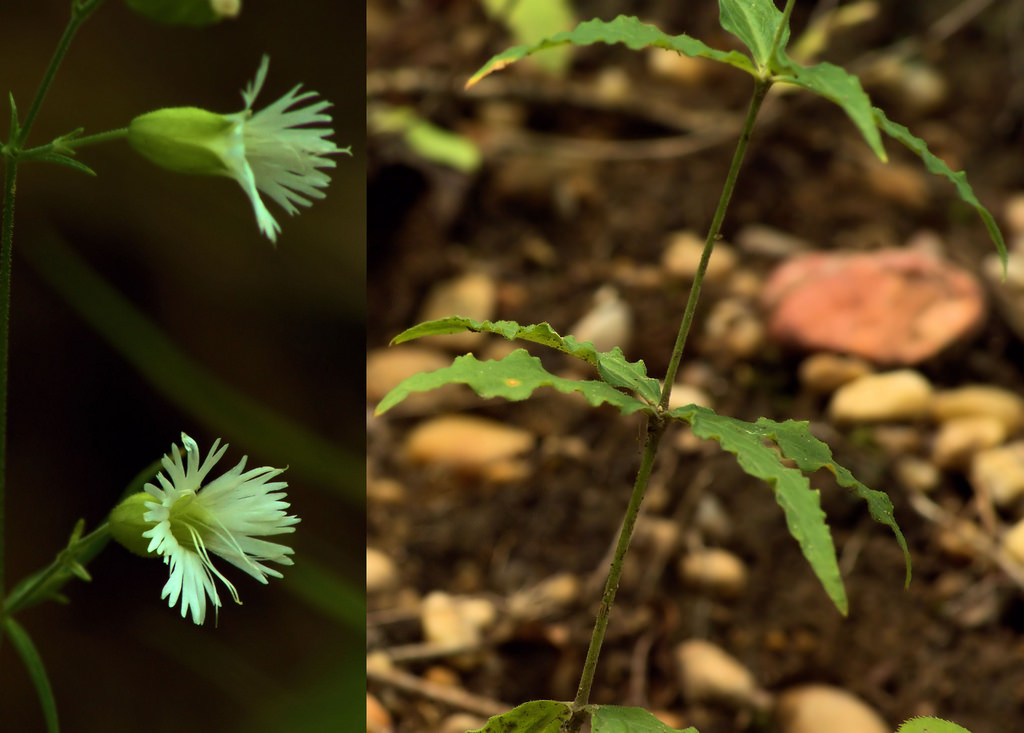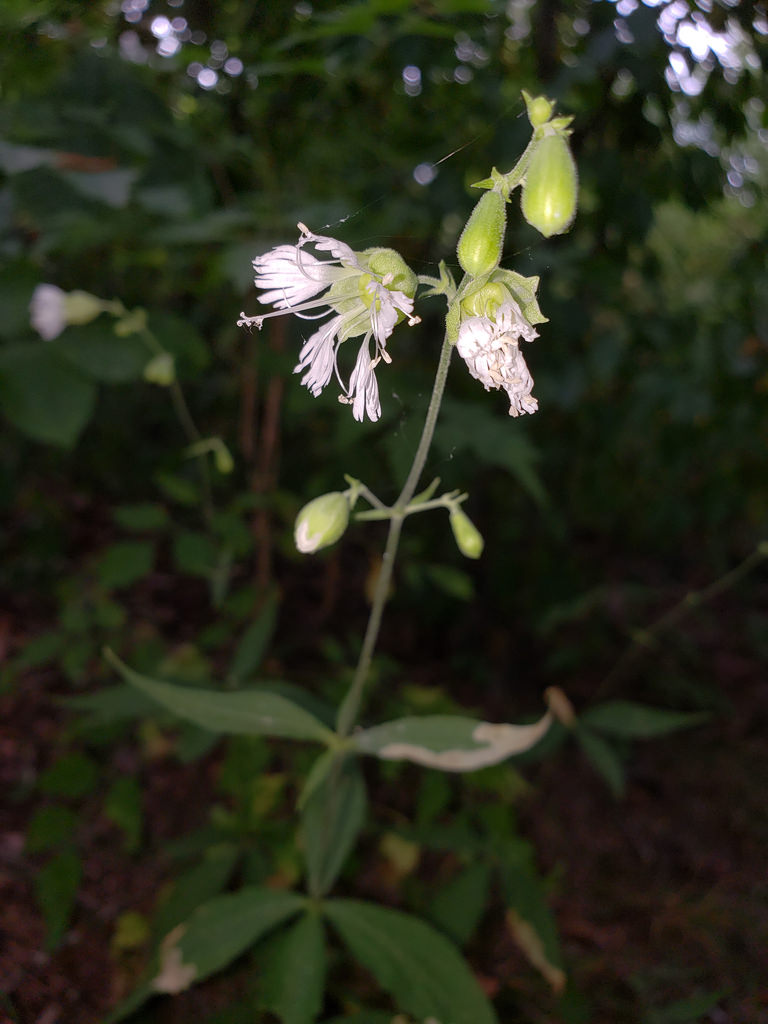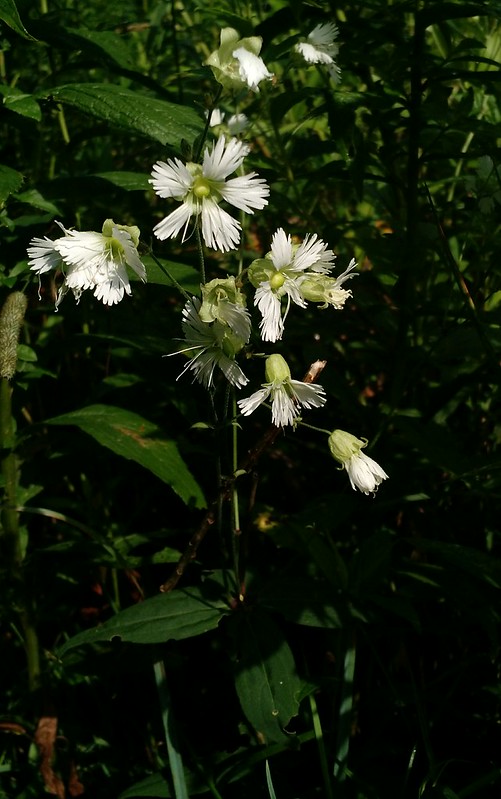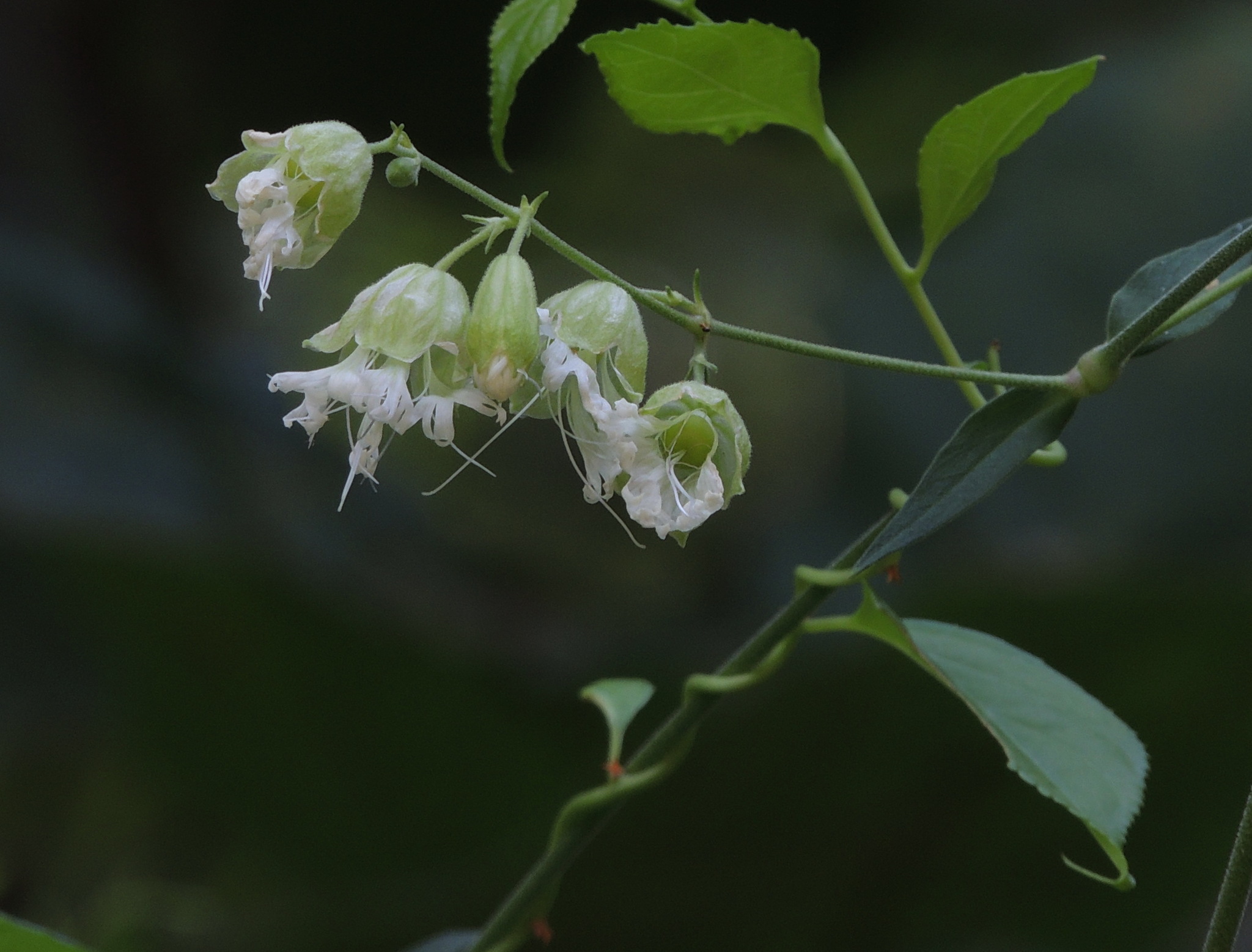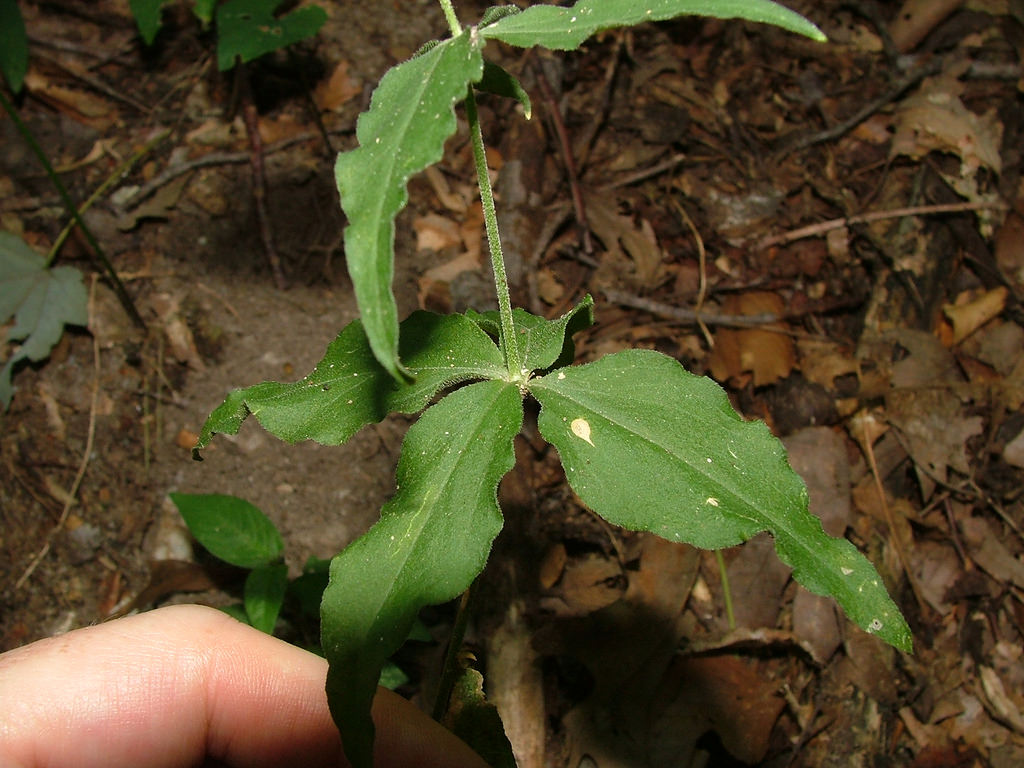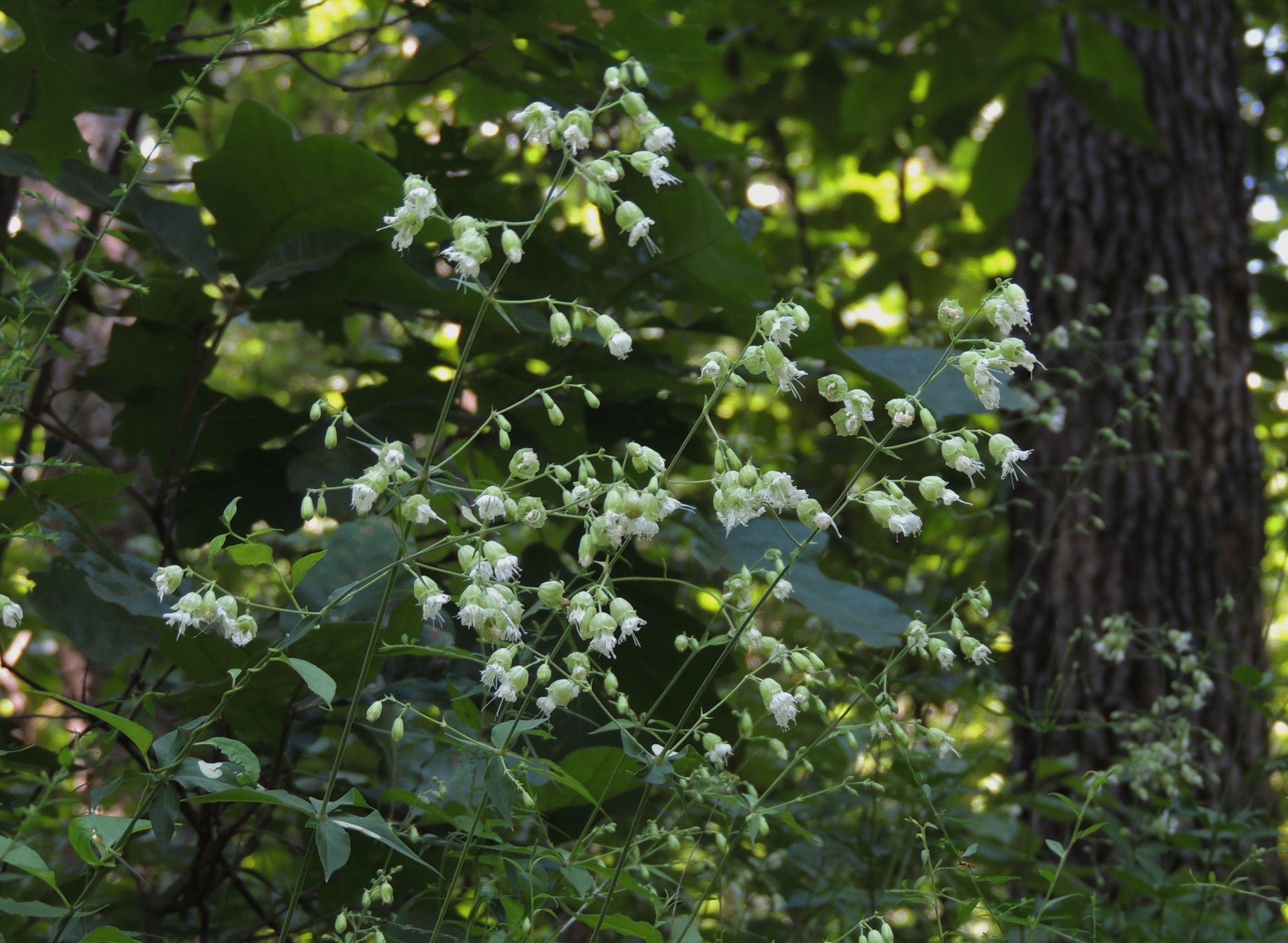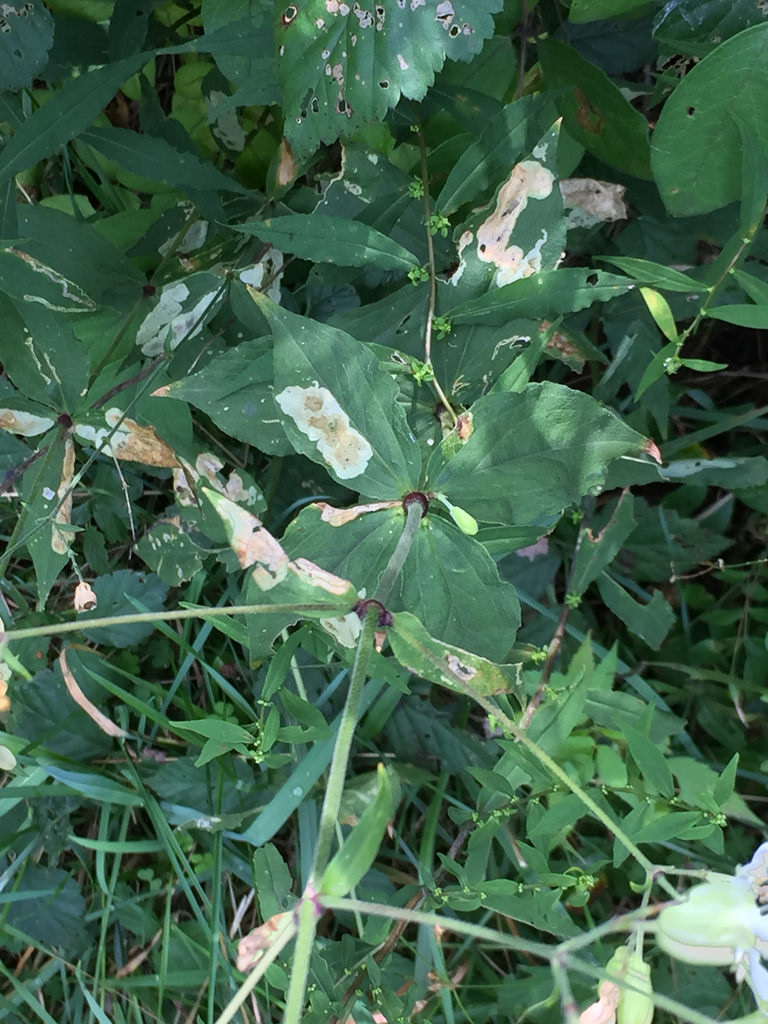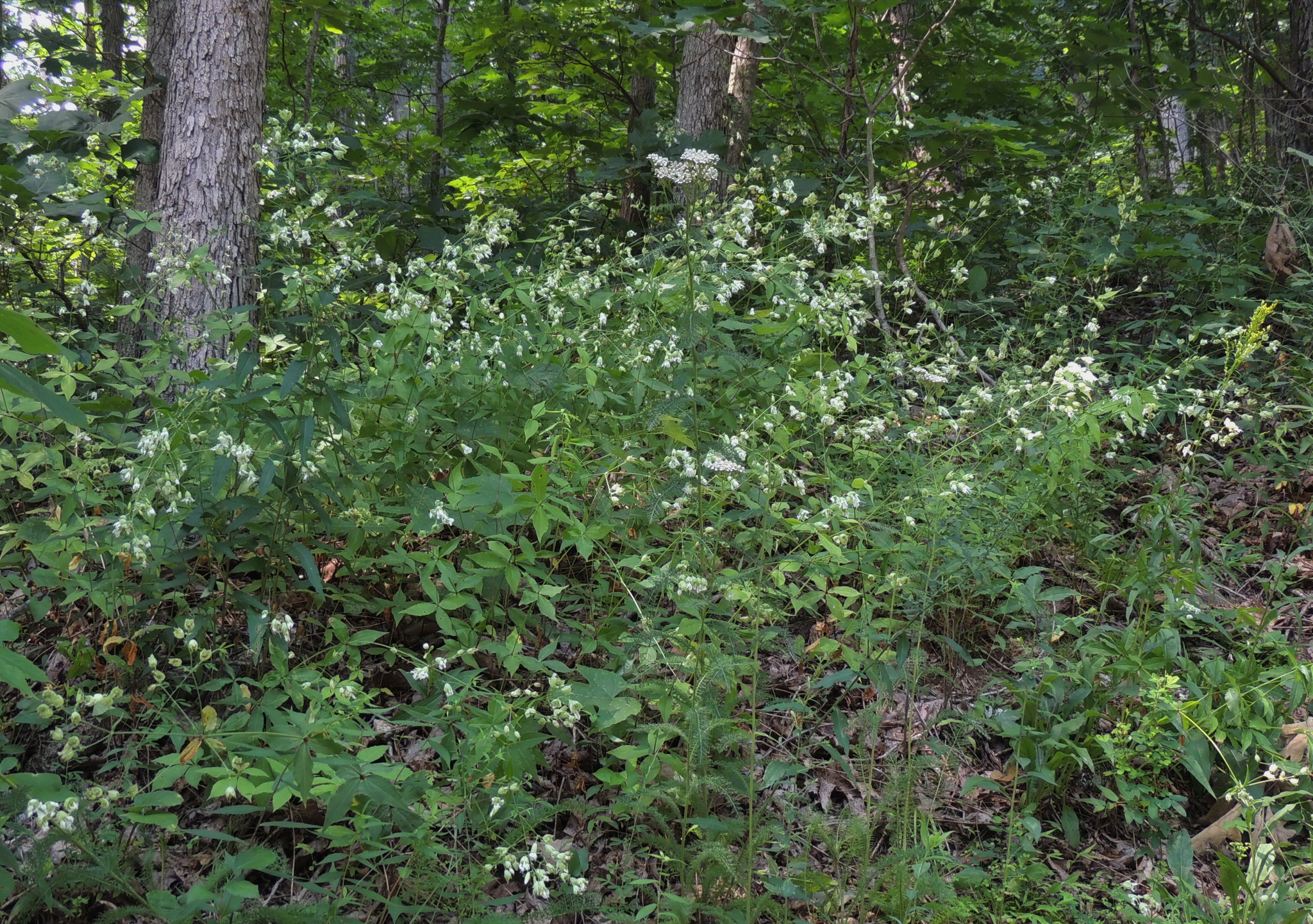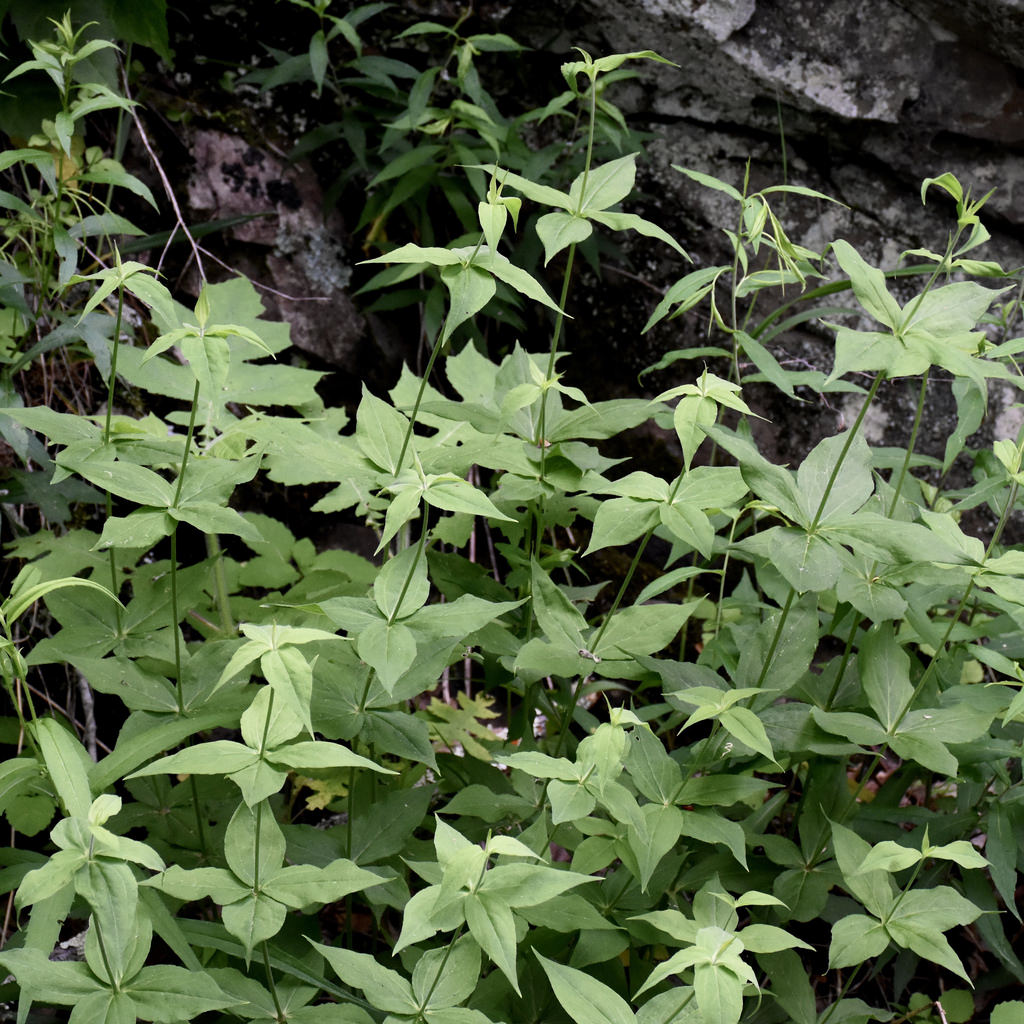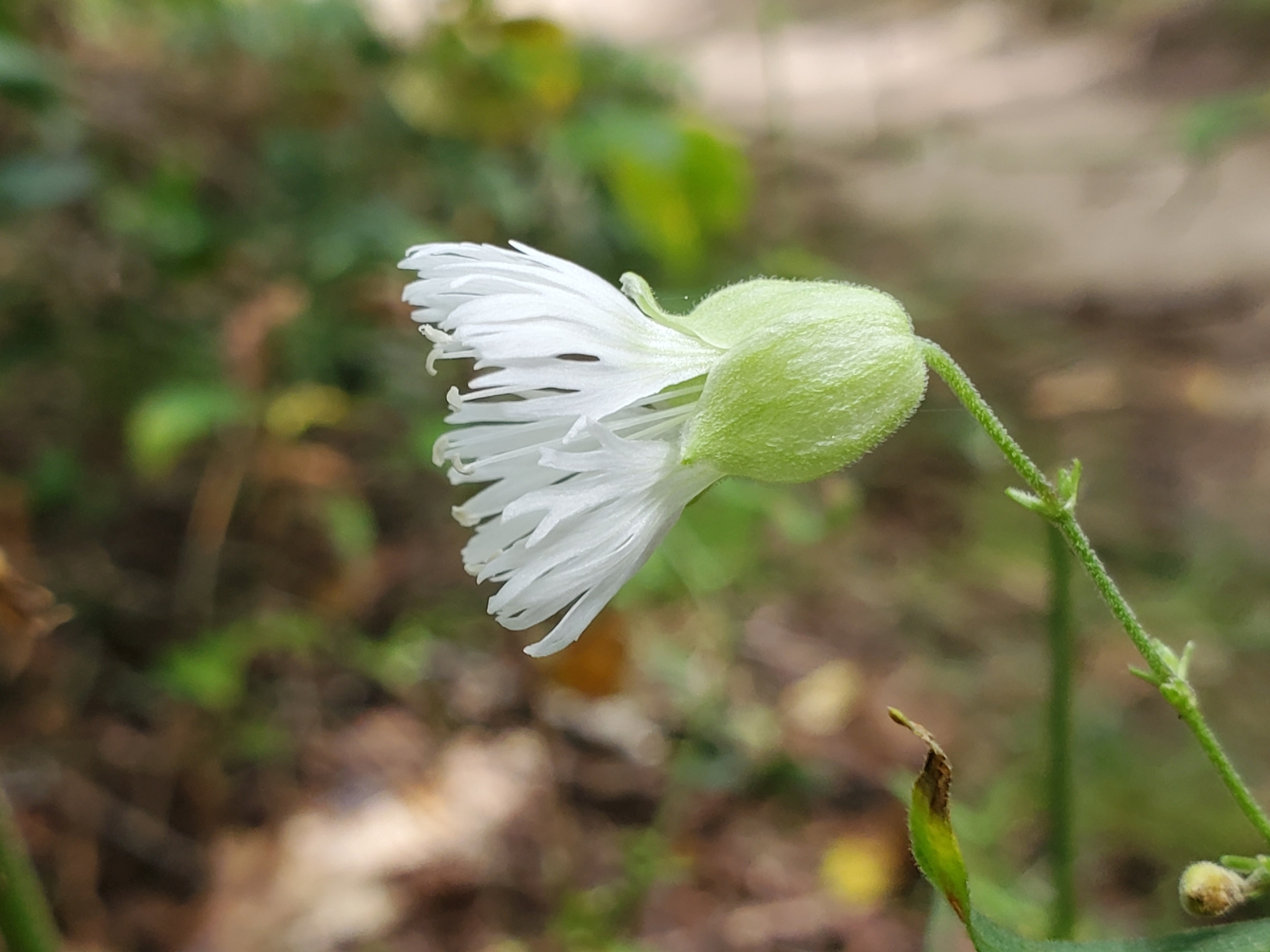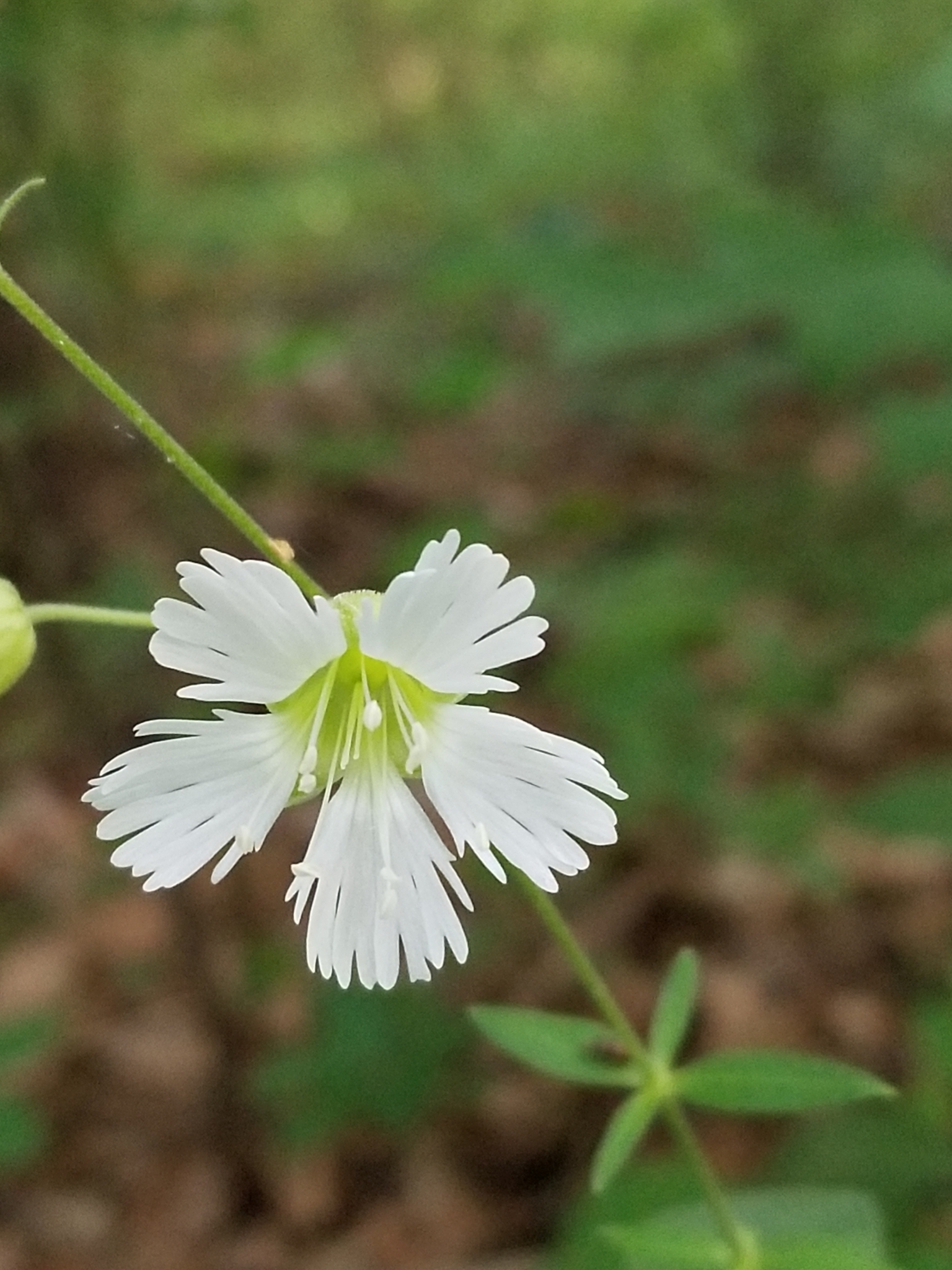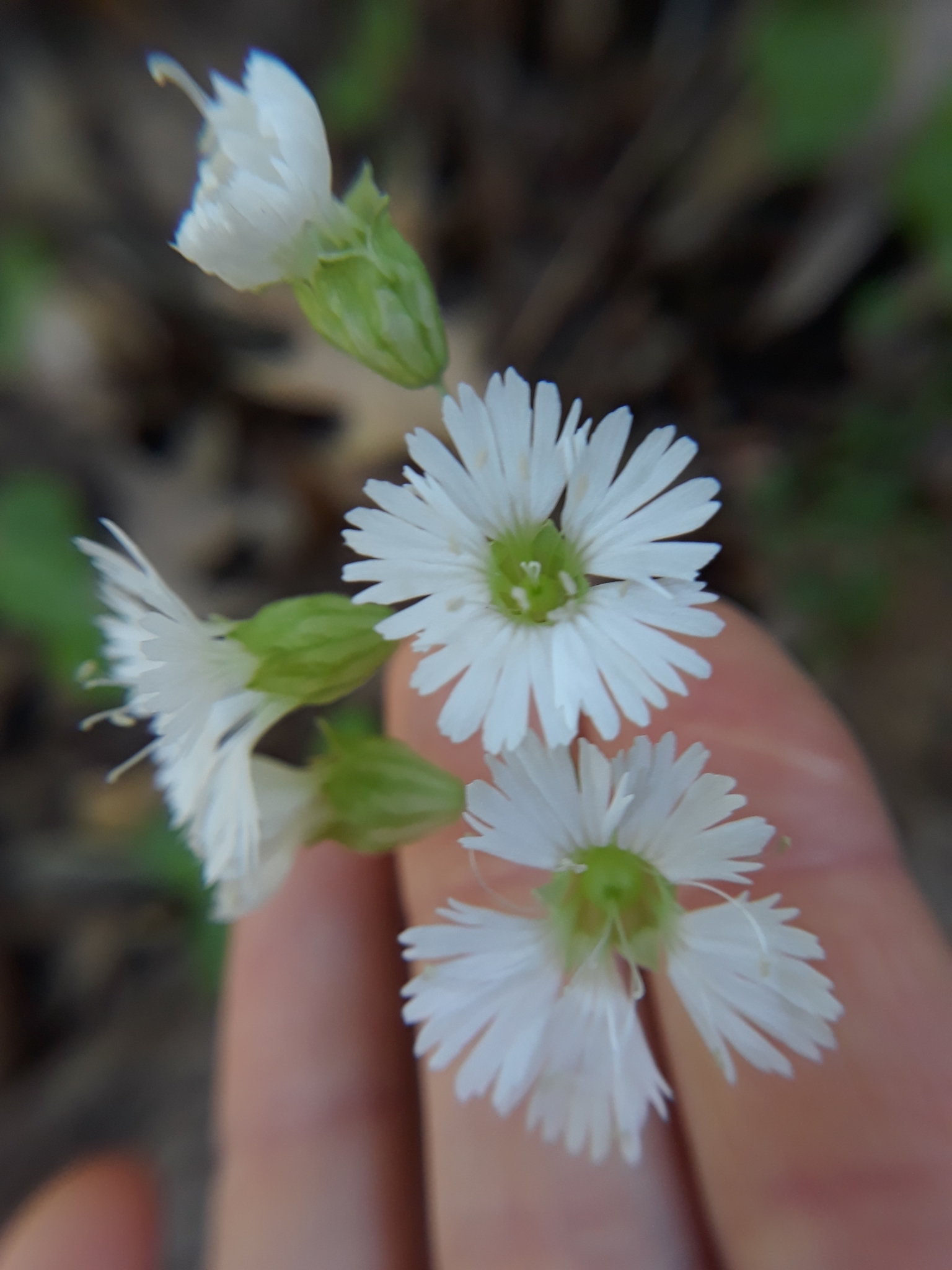Map Snapshot















155 Records
Relationships
Documented in Maryland as a larval host to the leaf-miner fly Amauromyza flavifrons.
Seasonality Snapshot
Source: Wikipedia
| Silene stellata | |
|---|---|

| |
| Scientific classification | |
| Kingdom: | Plantae |
| Clade: | Tracheophytes |
| Clade: | Angiosperms |
| Clade: | Eudicots |
| Order: | Caryophyllales |
| Family: | Caryophyllaceae |
| Genus: | Silene |
| Species: | S. stellata
|
| Binomial name | |
| Silene stellata (L.) W.T. Aiton
| |
Silene stellata, known by the common names starry campion, widow's frill, and whorled catchfly, is a perennial herbaceous summer forb with white flowers, native to the central and eastern United States. It grows in habitats such as forests, river flats, and tall grass prairies.

Description
[edit]S. stellata grows to a height of 0.3–1 metre (1–3 ft), with one or multiple stems rising from the rootstock. The stems are a purplish color near the bottom and a pale green toward the top, except at leaf nodes, which are also a purplish color. Leaves are lanceolate, sessile, and have a smooth margin. They are opposite near the bottom of the plant and in whorls of 4 on the rest of the stem. Leaves are up to 10 centimetres (4 in) long and 3.8 centimetres (1.5 in) wide. The inflorescence is a loose panicle consisting of several branches, each with 1 to 6 or more white flowers with 5 petals. Flowers are up to 1.9 centimetres (0.75 in) wide.[1] The flowers have no scent.[2]
Etymology
[edit]Silene is from the Greek god Silenus. Stellata means "star-shaped" in Latin.
Distribution and habitat
[edit]The plant can be found in woods, river flats, and tall grass prairies, and it prefers a dry to mesic habitat with light shade or partial sun.[2][3] It is native to the central and eastern United States, from Texas to the west and Vermont to the east and north.[4]
Ecology
[edit]S. stellata blooms from June to September for 3 to 4 weeks.[5] The white flowers close when there is bright sun.[1] Moths are the primary pollinators, although butterflies also pollinate the flowers.[2] The plant is a host for the caterpillars of the Hadena ectypa moth.[6]
References
[edit]- ^ a b ANPS, Webmaster (21 July 2014). "Know Your Natives – Starry Campion". Arkansas Native Plant Society.
- ^ a b c "Starry Campion (Silene stellata)". www.illinoiswildflowers.info.
- ^ "Digital Atlas of the Virginia Flora | Silene stellata (L.) Ait. F."
- ^ "USDA Plants Database".
- ^ "Silene stellata (Starry Campion, Whorled Catchfly, Widowsfrill, Widow's Frill) | North Carolina Extension Gardener Plant Toolbox". plants.ces.ncsu.edu.
- ^ "HOSTS - The Hostplants and Caterpillars Database at the Natural History Museum". www.nhm.ac.uk.
